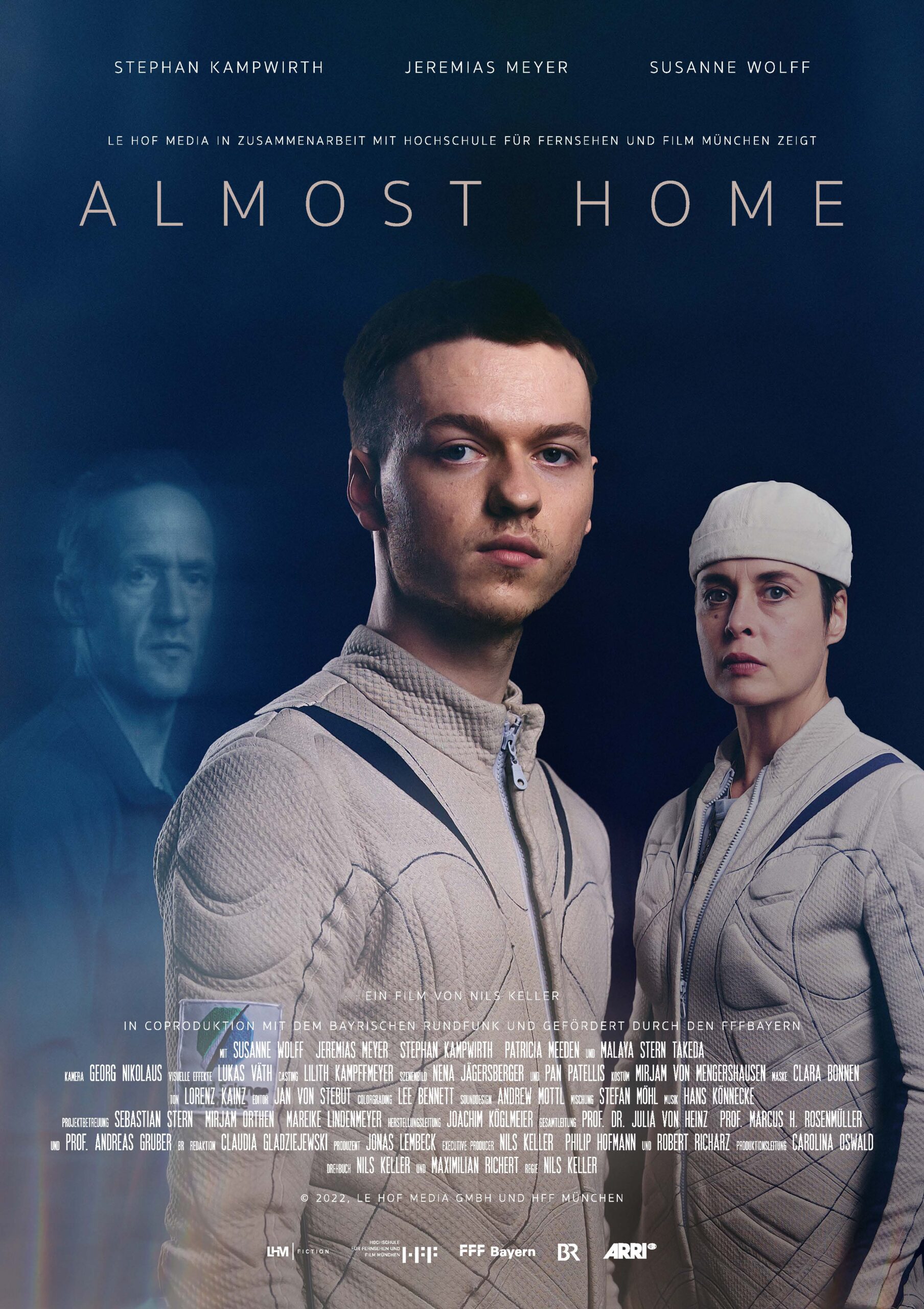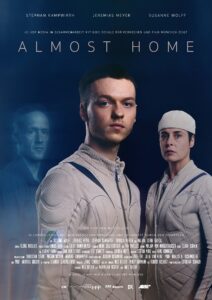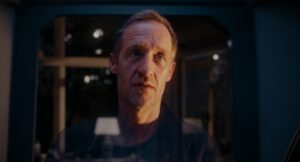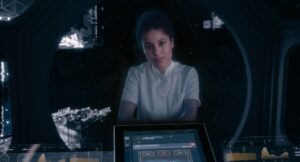
Oscar Shortlist Short Film Review “Almost Home”
WATCH THE TRAILER BELOW
First, the Recap:
A wish for home. In the ideal place we desire to reside outwardly and inwardly, this is where the heart truly is. When we’ve been away from this for extended periods, the notion of finally coming back only rings stronger when it is coming about. However, what if circumstances beyond our control enter the picture and disrupt that which we’ve been so pining for–can we see beyond ourselves towards a greater good? Or will our own needs attempt to usurp logical reasoning? Returning from a long journey in space with his mother Nico (Susanne Wolff), teenager Jakob (Jeremias Meyer) prepares to come back to everything he’s been anticipating on Earth. It all flows smoothly until Nico sees a notification from the surface that becomes a harbinger of doubt and danger, ushering into existence a decision that must be made which will so deeply impact the relationship between mother and son.
Next, my Mind:
Parental purview, the basic challenges of being a teenager, long-lasting isolation, the yearning for what has been absent, the weight of choice, and an ultimate foundation of unconditional love take center stage with consistently growing potency and subtle then fervently compelling, heartening extent through this Oscar-shortlisted 30-minute short film that comes courtesy of writer/director/executive producer Nils Keller, writer Max Richert, producer Jonas Lembeck, co-producer (on behalf of Bayerischer Rundfunk) Claudia Gladziejewski, and executive producers Philip Hofmann and Robert Richarz. The biggest hurdle this critic feels happens within the cinematic world is the pitfalls of attempting to tackle grander concepts that we’ve seen done over and over again, more so recently, but then discovering SOME means to make it unique, fresh, or at minimum unequivocally relatable for us as a viewer in order that what we HAVE witnessed in the past will come alive and anew. I honestly felt this was executed here with a deft and very human touch.
The narrative, which focuses on a teenage boy on the cusp of overcoming a multitude of obstacles he’s faced over the last several years via arriving back home to Earth after a somewhat “forced” exile due to his personal circumstances on top of being confined with no one else but his (very much caring and doting) mother for company, takes us on a beautiful journey that encompasses the angst of youth clashing against the more reasonable, realistic, and logical thinking that a parent will have when it comes to the wellbeing of their child. Yet, the story doesn’t remotely shy away from the notions of loss, the excitement of anticipated rediscovery and reconnection, the hard realities of unforeseen perils, letting go of what we sometimes try a little TOO hard to hold onto for ourselves rather than considering how another might actually feel (aka: overprotective), built up frustrations, conflicting opinions, allowing room for another’s decision, accepting responsibility, and the genuine strength of a mother/son bond that creates the stirring underlying core here. Plus, the timing of the subject matter this story delves into that we could deem as the “antagonist” is no coincidence, and assuredly bears an all-too-familiar relatability for us currently.
It’s a foregone conclusion that kids will always at some point find an excuse to resent their parents, wanting nothing more than to push back, defy, deny, and/or try to go their own way as they picture what is “right” in their minds. I absolutely applaud the execution of this particular idea and how it’s executed over the course of the film, as it’s about context and perspective, which is conveyed with a subdued but then impassioned manner that really allows the story to be carried off without a sense of unnecessary melodrama or feigned emotional depth. As mentioned above, it’s simply a realistic study in humanity, our behavior, and the ability we have to employ intelligent, wise, and objective thought, even through a haze of pent-up desires and expectations like is realized in this narrative, and come to a conclusion that reveals the most beneficial, practical steps to take, a factor which gets both a proverbial and more literal exploration in the film as well. The finale we arrive at is moving and deeply apropos for where we’ve come from earlier.
Additionally, the selection of music for this film, both instrumental and vocal, very much made that often longed for impact on me, utilized masterfully at the right moments to have the greatest impact on the scene in question, and bringing that atmospheric layer to each set of moments each piece or song accompanies. Meyer genuinely comes across as grounded and sincere, embodying the reflective, mildly overconfident, and barely contained bravado of a teenager just chomping at the bit to be free again and seeing that light at the end of a long slow tunnel that is his return to Earth from Mars via his role as Jakob. Still coming out of a physical struggle he’s endured but is now healing from thanks to the day’s technology, Jakob readies himself in all ways to embrace what’s he’s been missing. But when the situation alters drastically, it will become a test of all he is to recognize what he must do. Meyer takes on the rollercoaster of sentiments and attitudes his character requires with ease and fully believable finesse.
Wolff likewise effectively presents the demeanor of both a travel-weary veteran astronaut and a loving but soon-to-be-concerned mother through her role as Nico, a woman of intelligence, fortitude, and perseverance who has been her son’s sole companion in their confined space vessel for a good span of time, and looks forward to a return to Earth, but we feel more for the sake of her son and supporting his bid for “liberation” to just BE a teen again than for herself. Yet, once all seems to be perfect and the last procedure to get home has come, a monster raises its ugly head and causes Nico to reconsider everything–even if it means disappointing her son by taking unilateral action–and the ensuing interactions between parent and child will dictate what the future might hold for both of them in the now, and what might have to be put on hold again. It’s a wonderfully portrayed and nuanced performance that carries a fire and an emotive calmness that suits the character so well, and Wolff does a fantastic job of bringing this all together.
Primary supporting roles arrive from Malaya Stern Takeda as Lisa, a girl Jakob had to leave behind and someone who is clearly one of the most special people in his life that he’s been communicating with and envisioning seeing again, Stephan Kampwirth as Jakob’s father Tom who could quickly find himself both a voice of support and dissent when it comes to his son finally getting to come down to Earth in the midst of newly emerging elements that could jeopardize Jakob, and Patricia Meeden as Salma, the doctor Nico has been speaking with about Jakob’s condition and whether an arrival on Earth will be best for him or not. So, in total, “Almost Home” definitively takes a highly common set of thematic cornerstones, gives them an equally common treatment, but then elevates them through a means by which the ideas of panic, confusion, uncertainty, and precaution get folded into a point of view that addresses them from a tangibly credible and expanded scope, applying it all to familial bonds and an aching for home that truly touches the soul.
As always, this is all for your consideration and comment. Until next time, thank you for reading!







